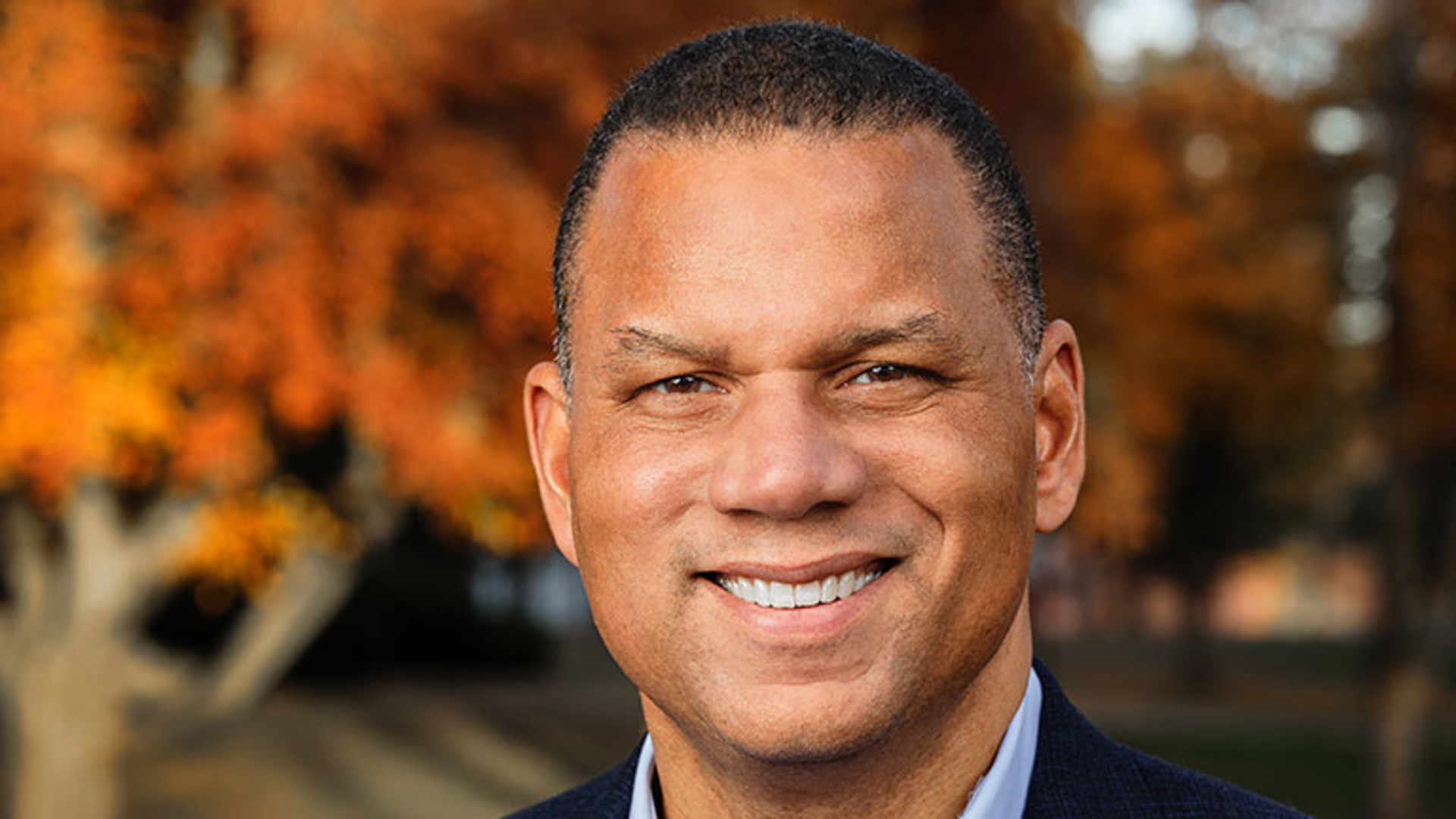
The economic benefits of higher-ed institutions on an individual and a community are immense. Colleges need to do a better job defining and defending that impact.
"My hope is that over the next several years, we can find ways to continue to open the doors of our higher education institutions to more students and enhance how we might use our institutions to build pathways to futures that they and their families might have barely imagined for themselves. In doing so, we must ensure that we are able to articulate the value we bring, particularly when facing a far too often skeptical public."
The following op-ed column by President Kyle Farmbry appeared in the Aug. 11, 2024 News & Record of Greensboro, N.C.
The beginning of the academic year brings excitement and anticipation to college campuses across the nation. As our students get ready to pour into our classrooms, we begin to think about all of their academic and professional goals and how our institutions might help them achieve these goals.
In the Triad, we have several great institutions of higher education — all of which are dedicated to enhancing educational opportunities for our students and others in the community. We have talented scientists, teachers, business people, lawyers and others in a wide range of professions whose career success stems from their experiences on one of the campuses in the region.
Declining enrollment
In mid-July, the News & Record published an article titled “Quitting the Books,” which noted that a growing number of people have been questioning the value of a college degree. Whether it is because of the perceived cost of a degree, recognition that there are a number of good jobs that pay well and don’t require a degree or questions about the importance of what students are taught in today’s classrooms, we have witnessed declines in the number of people pursuing higher education and a growing narrative that college is not as important as it may have once been.
According to 2022 Census data, only 37.7% of the adult population in the U.S. over the age of 25 has a bachelor’s degree. College is not for everyone, but we need to have conversations about this statistic, and how to make higher education available to more adults. We also need to make sure that more people see college as an option and that we are doing everything in our power to support those who choose to pursue their degrees.
The value of colleges
At the core of the challenges that higher education faces is a need to reaffirm the value that these institutions bring to communities. I tend to look at the value of higher education from three perspectives. First is the value to the individual of completing a degree. The economic benefits of college in enhancing one’s job prospects and one’s potential life-time earnings are several-fold. According to the Social Security Administration, men with bachelor’s degrees earn approximately $900,000 more in median lifetime earnings than high school graduates. Women with bachelor’s degrees earn $630,000 more. Graduate degree holders tend to earn even more ($1.5 million more on average for men and $1.1 million for women).
Second, is the benefit to the immediate community. Higher education institutions have a role in elevating the broader educational foundation in communities. As a result, the corollaries that historically come with a more educated society — broader economic returns, more jobs created and other benefits — are critical. Colleges and universities also serve as local economic generators, creating local jobs, leveraging local institutional spending and helping to build often-needed human capital pools.
Third, are benefits to the broader global society. As we think about the numerous scientific discoveries made in university laboratories and their relations to solving our most complex challenges, often the attainment of a university or college degree is central. Pick a challenge related to health issues, climate resilience or broad economic dislocations, and many of the researchers and scholars working in higher education are helping to solve some of them.
Opening minds and doors
We need to make a concerted effort to rebuild our trust as institutions with tremendous public value. We have roles in working alongside community partners to help address the deepest of needs in an often seemingly divided society.
We need to frame conversations around developing meaningful skills for students. In this case, skill development doesn’t just mean technical skills that might be critical in a workplace, it also means skill building for participation in civic discourse. In this election season, enhancing skills in critical discourse are some of the most important that we can encourage students to explore. How might students from different political viewpoints find strategies for enhancing their roles in bridging differences?
From my 25 years of working in higher education, I have long recognized the joys of watching the intellectual growth of students during their college careers. Several students have found careers in the sciences and medicine; some have found careers in law and politics; others have launched exciting new entrepreneurial ventures; and still others are in critical roles in the corporate sector. Many are making critical impacts in the world around them.
My hope is that over the next several years, we can find ways to continue to open the doors of our higher education institutions to more students and enhance how we might use our institutions to build pathways to futures that they and their families might have barely imagined for themselves. In doing so, we must ensure that we are able to articulate the value we bring, particularly when facing a far too often skeptical public.
As with the beginning of any school year, I look at this one as the beginning of a pathway for enhancing the route for new opportunities and new experiences for intellectual and professional growth for Guilford College students.
I can imagine that every other president in the region would say exactly the same.

